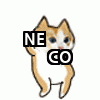Computational journalism has been an emerging discipline in recent years. A lot of inspiring data-driven studies on news production, distribution, and consumption have been published and discussed. Some conferences, such as computation+journalism symposium, have started to offer places for computer scientists and journalists to help each other to discover new research directions. The topic has recently received a great attention as it is relating to a few, but crucial societal problems, such as media bias, echo chamber, and filter bubble.
On the other hand, social media has received a lot of attention from researchers who study public opinion. The data collected from social media is a valuable asset to see what people have in their minds about at the very moment or to examine the effect of information exposure. Election prediction based on Twitter is an exemplar of such efforts.
In this workshop, we are trying to make these two disciplines meet. How news media formulate public opinion and how public opinion influences on news media are our questions to ask. For this, of course, the parallel efforts on the understanding of news media and public opinion are required first, and then based on the findings, we can look into the interplay between them. As a result, the workshop topics can be categorized into three groups: news, public opinion, and their interplay.
Theme 1: Data-driven studies on news production and consumption. Theories on media influence have long been studied but in a limited setting mainly due to the lack of data availability (previous studies heavily depends on survey results). We revisit some of the central questions in the media influence theories and aim to investigate them with a large-scale data. Relevant topics are (but not limited): News bias measurement, news coverage analysis, news diffusion analysis, news comment and content analysis, channel characteristics analysis, news story evolution tracking, automatic generation of news headlines and text, news audience analysis, and news recommendation.
Theme 2: Accurate measurement of public opinion. Recently, web logs and/or social media have been used as a means to capture the public opinion. Yet, it still suffers from the bias (e.g., selection bias, sampling bias, etc.). We open to new method to contribute for capturing public opinion, and we also seek to debiasing methods when sampling data from social media. The proposed methodology can also be useful for social sensing or nowcasting. The recent breakthrough in Natural Language Processing Techniques (e.g., word embeddings) has opened a new door to analyze better for textual content. Relevant topics are (but not limited): Measuring public opinion through social media, social sensing and nowcasting, Debiasing methods (e.g., re-weighting schemes) for social media data, summarizing and extracting sentiments, and connecting online and offline index.
Theme 3: Interplay between news and public opinion. By linking news and public opinion, we aim to quantify the impact of news articles or news stories and how it shapes public opinion. We will also discuss what is the practical implication of the research (e.g. for newsroom). Relevant topics are (but not limited): Impact of news on public opinion, influence of public opinion on news, and mapping between news and public opinion.
Special Theme: Corona Virus.
This year we would particularly appreciate your contributions relating to the novel Coronavirus (COVID-19). By understanding news media and public on COVID-19, such as what news media report, how people feel, what are the most concerns and problems of people, what people are most fearful or hateful about, and how news media influence public feelings and emotions, we hope our efforts would help all of us to go through the hard times. We added some possible data sources for studying coronavirus. Please check the dataset page.
Note
We are running our workshop in parallel with MEDIATE 2020, the Social and News Media Misinformation Workshop.
If you are planning to submit your work, please consider the following as a rule of thumb:
Social and News Media Misinformation: please submit to MEDIATE
News and Public Opinion: you are in the right place
